The Pink Star raspberry is the latest addition to the Agrovision portfolio, says Managing Director Europe Stefan Spanjaard. "Although blueberries remain our main focus, this fits well with the pursuit of a broader approach. Along with blueberries, we want to make this a big product. We aim to be a global berry player. Being able to offer different varieties - besides blueberries and raspberries, for example, also blackberries - makes it attractive for buyers to place one order for three products," he begins.
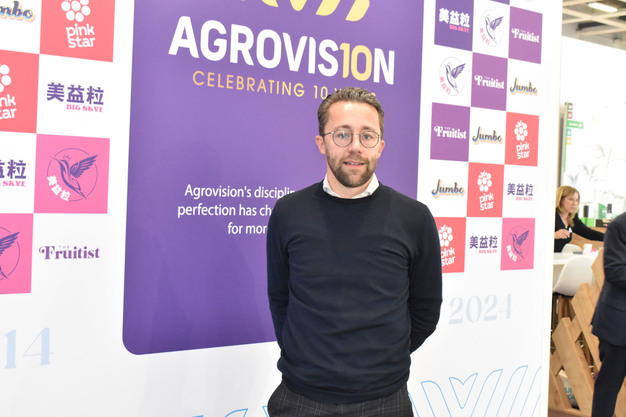
This new variety stems from a consolidation with Earth Market, a French breeding company. Agrovision and it - for the French market - and Berrynest - for the organic market - is one of three parties bringing this raspberry to the market.
Exclusive variety
"Our focus lies with quality, which depends on the variety. We're betting on that with this exclusive raspberry variety, just as we do with Fall Creek Sekoya program blueberries. With an exclusive variety, you can play the cards much more to your liking." Pink Star raspberries are cultivated in Morocco and Mexico.
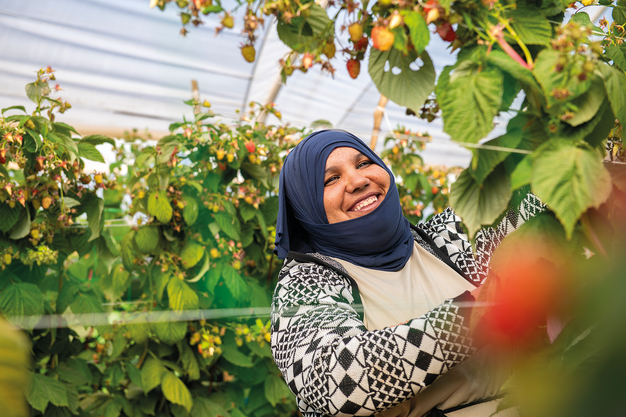
Strides are also being made with blueberries. For instance, it was recently announced that planting in India, Chile, and China has begun or is about to start. Blueberries are also being planted in Romania, and production is being scaled up in the Americas. "We're moving from a Peruvian cultivation company to a global one. We're making the right decision at the right time to set up sales and marketing divisions in each region, with the aim of best serving the interests of us as growers and our strategic partner growers," says Stefan.
Growth potential
He sees growth potential for blueberries, pointing out that there are still many countries where its consumption lags behind that of the United States or some European countries. "That includes France. The emerging markets in the Middle East, the Caucasus countries, and Southeast Asia offer opportunities, too. Those areas are very interested in good fruit. And, of course, there's huge potential in China. But market development stands or falls with the right supply and marketing."
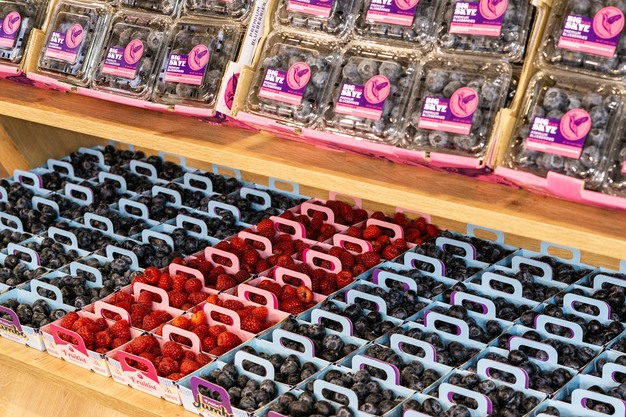
The starting point here is market-driven cultivation, with a focus on the better varieties, Stefan explains, saying: "Where are we going to grow, for whom and why? Those aspects play a role. More of the same, which often creates disappointing consumer eating experiences, won't help us move forward. Distinctive, exclusive, non-interchangeable varieties will." The focus, thus, remains forward. "We have a nice package of varieties now, but what's nice now may not be good enough in five or 10 years. That's why we stay in close contact with the breeders," he adds.
Focus on size
Stefan notes that the current focus is on size. "Larger blueberries benefit cultivation, and the new Sekoya varieties provide a lovely eating experience." He also sees that things like yield, transportation sensitivity, and different flavor profiles for different markets are essential in blueberry breeding. "We must move people and retailers away from the idea that large berries are risky for aspects such as softness and mealiness. That perception is based on the old varieties. But the newest varieties, with Sekoya leading the way, provide that ultimate snacking experience with large berries. Much of the total production regularly comprises 18mm+ and 22mm+," says Spanjaard.
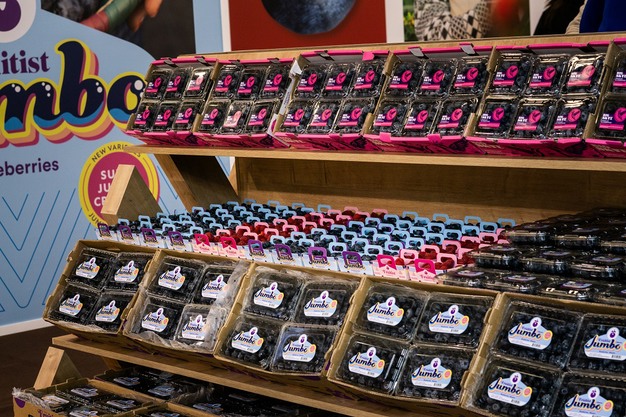
He goes on to say that being able to work with fewer inputs is vital. That focuses on factors like water use and the plants' fertilizer or nutrient needs. "Just like different people need different nutrition, we're trying to determine those needs per variety. These are challenges, but also chances to coordinate things better throughout the crop, to get the same or more out with less input."
Daring to invest upfront
Stefan sees that besides labor, water is under pressure. Agrovision has ensured water availability in production sites in countries such as Peru and Morocco, where that can be a problem. In addition to ensuring plots have access to water, they apply water-saving cultivation techniques, like in Morocco, where desalinating salt water addresses the freshwater shortage. "There are costs associated with that, but ultimately, missing out on production because of insufficient water availability always costs more than daring to invest upfront. But it remains a discussion point for the longer term," he reckons.
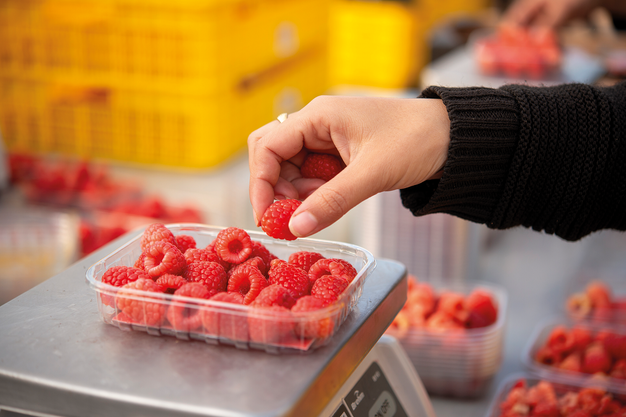
They are seeking innovative solutions in other areas, too. "We're introducing modern technologies." Agrovision, for example, uses AI in forecasting, logistics planning, and to improve shelf life. "We're an innovation-driven company. That's what will help us optimize processes."
Brand experience
"We increasingly focus on branding. The United States and China are brand-driven countries," says Stefan Spanjaard. That is why Agrovision introduced the Big Skye and The Fruitist "Jumbo" brands. Agrovision wants to use this brand recognition to tap into new markets and segments, like greengrocers. "We position our company and brand really intentionally," Stefan said.
Stefan Spanjaard Agrovision Europe
Agrovision Europe
+31 (0)6 558 133 36
[email protected]
www.agrovisionfresh.com










